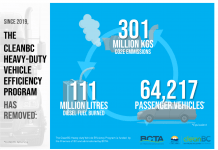Are we ready to get back to normal? A strange-sounding question that begs the word yes. After more than two years of COVID-19 and working remotely from the office there is a push to get people back downtown, into their chairs and behind their desks. Workers wonder what is going back to the office going to look like?
Many are unsure and hesitant, and some are even fearful. A CBC report says, “One in three Canadians would consider looking for a new job if their employer forced them back to the office. Nearly a quarter would quit immediately.”
Some advocate for a blended schedule, part of the time working in the office and the remainder remotely and gradually reacquainting to office life.
Psychologists say that human nature will bring us back together at work sooner or later. For the time being health and safety concerns will make employees resistant to working in an office environment. Duke University behavioural economics and psychology professor Dan Ariely believes employers will need to offer trial basis returns to the office. In time the social nature of humans will lead more workers to see the benefits of being in a workplace again.
For downtown merchants, the last two years have been horrific. For many, the slow return to the workplace has been too little too late. Restaurants and retail shops have suffered severely. Those that are “mom and pop” businesses, and not chain stores and restaurants like Staples, Tim Hortons, Starbucks, etc., may very well have closed up shop.
Keith Reading, Director of Research at Morgard (one of Canada’s top commercial real estate companies) says the downtown model is broken. “The way companies use buildings is changing, the traditional work model of going in five days a week, from 9-5, is a thing of the past. Retailers have lost their target market. For those returning to the office, shopping downtown is all about convenience. Commonly workers want to go during their lunch hour or maybe after work to pick up a couple of items. But if you have people only going to work three days a week, downtowns will be less dense moving forward. I don’t believe we will get back to where we were for a number of years.”
Corporate minds want to see their employees back in the office.
Apple Chief Executive Tim Cook told his employees outlining his company’s back-to-work plan, “I can’t tell you how much I am looking forward to being together again.”
Is it a case of productivity? Some reports say those working from home are 10-15% more productive.
COVID-19 forced us to stray from the norm. Working remotely felt strange at first, but now feels safe. Going back to the office is what now seems strange and worrisome. Research shows we do miss our workmates and our “place” at the office.
Gia Ganesh, vice president of people and culture at Florence Healthcare, believes “the workplace enables a sense of belonging.”
Hiring firms see the change in workers’ mindsets. Employees have been pleasantly surprised and comfortable with their work-from-home experience and don’t want it to end. Bosses on the other hand want a quick return to the pre-pandemic work mode.
Many executives simply don’t experience the same lives as their employees and are falling back on an antiquated view of work to make inferences about what’s important for a company to flourish. Executives have a better setup at work,” said Brian Elliott, the Future Forum’s executive leader “They probably have an office with a door. They probably don’t have the same child care issues as many employees. The risk that we run, as a society, even in a hybrid-work setting, is executives don’t listen to employees looking for flexibility, and a real proximity bias sets in among people who are at the office and those that aren’t.”
Proximity bias is defined as “an unconscious – and unwise – tendency to give preferential treatment to those in our immediate vicinity.”
But Ellis also had some cryptic thoughts, saying, “Will recession fears be the trigger that allows some execs to push people back to five days a week in the office? Yep, it will. The better question is, what happens next? My bet is that companies that take a flexible approach will win.”
The fact is, corporate America is likely changed forever. You’re making a huge mistake if you’re requiring folks back in office full time because they see the progress most companies have made in the last two years, and they’ll ask, ‘why?’ It feels like micromanagement.” says Amy Zimmerman, Chief People Officer at Relay Payments
Many people are frightened about returning to work, while others have grown comfortable working remotely. Almost half of the workers in Canada can theoretically do all or part of their job from home.
Workers and employers have seen the need for flexibility. “People are not willing to sacrifice their soul anymore for their organization and the privilege of working for you,” said Professor Linda Duxbury, who teaches at the Sprott School of Business at Carleton University. There is an ongoing war for talent that has given workers an edge they didn’t use to have.
Going back to the office may mean exposure to COVID. That is a real concern for some workers. Health experts say the only things you can control in this scenario are your vaccination status and masking.
If you are ordered back to work, you may not have much choice in refusing to return. This is according to Ryan Macklon, an employment and human rights lawyer in Vancouver.
Obviously, that scenario would not lead to a happy worker-employer relationship. Not everyone is up for the daily commute again. For now, flexibility may be the name of the game.
Two years of working remotely have changed the way we think about work and how we work. Now the push is to get us back to working at the office. But, COVID-19 may have indirectly revolutionized the office place job. Only time and human nature will give us the answer if the office job has returned to normal or is changed forever.






















